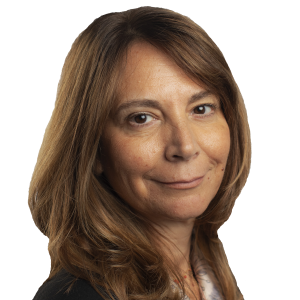The blame game after a child’s tragic death


Roula Khalaf, Editor of the FT, selects her favourite stories in this weekly newsletter.
The search for the villain started almost immediately. Confronted with the harrowing image of the small, lifeless body of Aylan Kurdi washed up on a Turkish beach, people around the world were galvanised into helping Syrian refugees and governments were shamed into acting. And everyone had an idea over who should be held responsible for the tragedy.
For the more cynical commentators, the villain was the father who put his children through the danger of a sea crossing on a dinghy; for many others it was, more reasonably, the manipulative smuggler who had promised a journey on a safer motor boat.
The devastated aunt of Aylan blamed herself for giving the family money for the journey; other Syrians denounced the Canadian government who had rejected the Kurdi family’s application for asylum.
On the list of culprits there were EU politicians, sparring with each other while the refugees braved inhospitable seas to reach the European dream. There were the Americans, always a convenient target when tragedy strikes around the world. And there were the Gulf Arabs, who take in so few of their brethren even though they are the countries that could most afford it.
The blame game then spawned its own wave of outrage. Those who denounced the father were branded inconsiderate — indeed it shouldn’t take living under the rain of bombs and the thunder of artillery to understand the parent’s psychology, and the reason he would be willing to take such an overwhelming risk.
Meanwhile, those trying to hold the EU to account had little understanding of the complexity of rules governing migration or the fraught politics surrounding it, even if their fury at European ineptitude was understandable.
In the debate over Aylan’s death, the real villains, the ones responsible for the largest humanitarian crisis since the second world war, have not received the scorn they so deserve.
Those looking for someone to blame should point the finger at the regime of Syria’s Bashar al-Assad, which transformed a popular uprising against it in 2011 into a brutal civil war in which civilian populations are regularly barrel bombed and have been chemically attacked.
Lebanon and Turkey struggle to meet the needs of Syrian refugees

The future of Syria and its neighbouring states, Lebanon and Turkey, remains unsure as they are struggling to cope with millions of refugees from the Syrian conflict. Gideon Rachman talks to Erika Solomon, FT correspondent in Beirut, and Dan Dombey, former FT bureau chief in Istanbul, about the political and societal strains caused by the refugee crisis.
Among the estimated 250,000 deaths in the war are perhaps more than 10,000 children whose still bodies most of the world has never seen. Many more children have been injured and maimed.
A year in to the uprising, there were 100,000 refugees — a number that has now swelled to 4m (and these figures count only those who are registered with the UN). Several million more are displaced within Syria.
Most of the refugees live in camps in neighbouring countries — Jordan, Turkey and Lebanon. They didn’t leave their homes with a European migration plan in mind; their hope was that the war would soon end and they would find their way back. Four years into their ordeal, they are looking for alternatives to refugee life, and for the promise of a more secure future for their children.
Of course the Islamic State of Iraq and the Levant, or Isis, shares a large part of the blame for Syria’s fate. Its atrocities have provoked new waves of refugees, including from Kobani, where Aylan’s family came from.
But though the world’s focus has been on Isis, the Assad regime and the militia allied to it still kill many more Syrians than the jihadis. According to the UK-based Syrian Observatory for Human Rights, a pro-opposition monitoring group, out of 1,205 Syrian civilians killed in August, 968 died in regime attacks including air strikes, shelling and sniper fire; and 194 were executed by Isis or killed in rebel fire (a further 43 people died in US-led coalition air strikes).
As Kenneth Roth, executive director of Human Rights Watch, says, in most wars civilians find a modicum of safety by moving away from the front lines but the indiscriminate use of barrel bombs by the regime leaves no place safe to hide.
This “ugly reality” has played a big part in persuading Syrians to flee, Mr Roth says in The New York Times this week. To save Syrians, and to stem the flow of refugees knocking on Europe’s doors, the Assad regime’s barrel bombs have to stop.
Comments